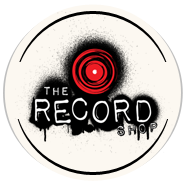We recently came across this alarming article regarding the future of digital performance royalties. Producers and artists in all levels of the industry should take notice of this developing situation. Let’s do our part to put a stop to the diminishing value of our intellectual property.
The Recording Academy- “It has come to our attention that satellite broadcaster Sirius/XM is seeking to bypass the standard system of paying royalties. If they are allowed to do so, it will likely result in substantially reduced payments to artists and producers, a lowering of the value of performance royalties, and unnecessary conflict between artists and their labels.
What’s the issue:
Currently, satellite radio pays sound recording performance royalties to the nonprofit collective SoundExchange, which in turn pays 50% to the artists on the recording and 50% to the copyright owner (usually a record label). SoundExchange pays the artists the full 50%, even if the artist has unrecouped royalty balances, and also pays producers their share as directed by the artist. The system has resulted in an important new income stream for creators.
Sirius is now seeking to use the option of direct licensing with certain independent labels instead of using the system created by Congress that ensures fair payment to all parties. Artists should be concerned about direct licensing; 100% of the royalties would be paid to the record label which in turn may pay artists at a lower rate, subject to recoupment. And labels should be concerned as well; the lower rate being offered could have the effect of lowering the value of performance royalties to all parties.
What you can do:
If you are an artist signed to the independent label…
You can call your label today and request that it not direct license your recordings. In the interest of fairness and transparency, your label should continue to license through SoundExchange.
If you own or manage an independent label…
It is in your interest to refrain from direct licensing. While Sirius may be offering positive terms, the long-term effect of accepting a rate lower than the compulsory rate could be to reduce rates overall in the future. Creating downward pressure on the value of music may be good for Sirius/XM, but it’s bad for artists and labels. Please see the following statement from the American Association of Independent Music: https://a2im.org/2011/08/09/statutory-rates-versus-direct-licenses-for-digital-music-streaming/
